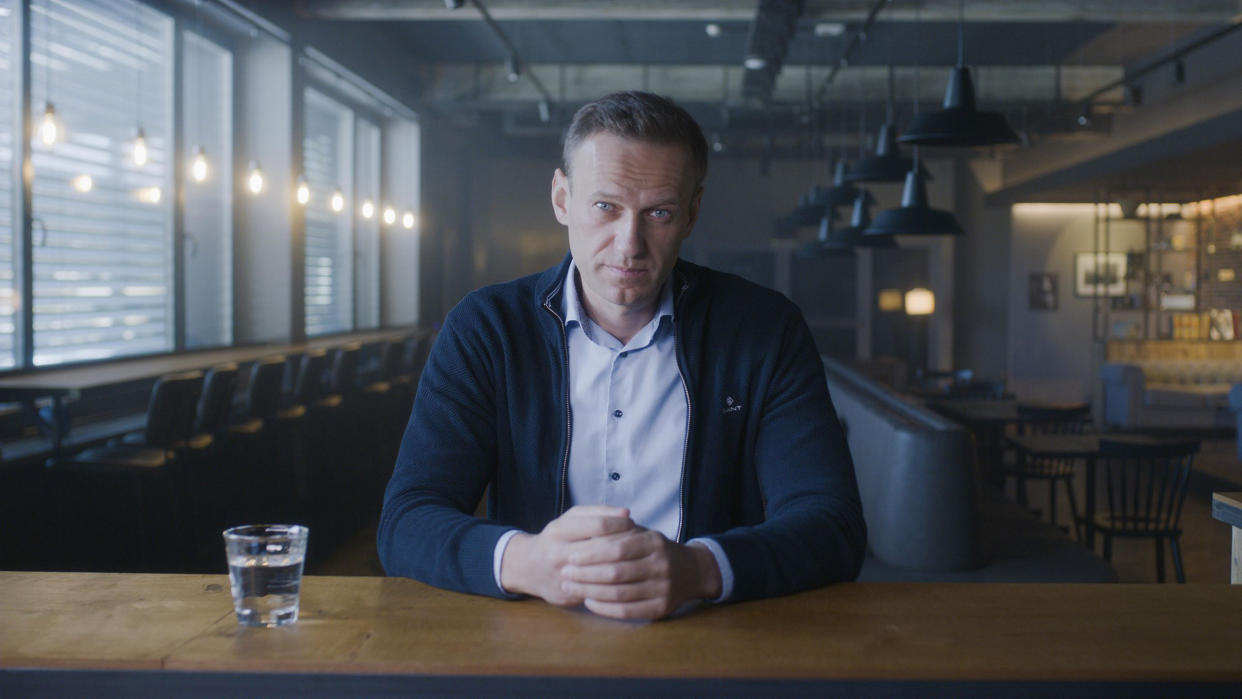‘Navalny’ Director Says Putin’s ‘Rein on Power Has Never Been Shakier’ and Russia Is a ‘Failed State’

- Oops!Something went wrong.Please try again later.
- Oops!Something went wrong.Please try again later.
Daniel Roher knew little about the Russian political landscape when he started interviewing Alexei Navalny for a documentary in 2020. However, after completing work on the end result — aptly titled “Navalny” — and watching Russia invade Ukraine as the now-imprisoned Navalny predicted, Roher said he was certain about one aspect of the country’s government.
“They’re a bunch of losers,” he said in an interview over Zoom. “They’re disorganized. This is what happens when corruption rots every element of your society.”
More from IndieWire
That takeaway extends in part from the most explosive sequence in “Navalny,” which premiered at the Sundance Film Festival in January and recently became available on HBO Max. The movie’s big moment finds its activist subject tracking down the Russian agents who poisoned him and tricking them into confessing over the phone.
That stunning confrontation, shot less than a year before Navalny was arrested while attempting to reenter Russia, illustrates a form of ineptitude that would later extend into the messiness of Russia’s invasion of Ukraine. “There is a direct connectivity between the schlubs who tried to murder Alexei, failed miserably, then spoke about it on the phone, to this catastrophic Russian war in Ukraine that they are losing,” Roher said. “It’s a failed state.”
Roher was in Ukraine in the fall of 2020, working on another sensitive project that led the government there to ask him to leave. (He declined to specify the details.) The Canadian director resettled in Austria while contemplating his next moves. “I was sort of adrift,” he said. “I had no film to make and the pandemic was destroying any job prospects I had. I was very anxious and had a girlfriend that was about to break up with me. My life was spiraling.”
Then he heard from Bulgharian journalist Christo Grozev, a collaborator on the Ukraine project, about the possibility of directing a documentary on Navalny in Germany while he recovered from the government’s attempt to poison him. “The learning curve was as steep as any,” Roher said. “I had a cursory understanding of Russian politics. I knew that Putin wasn’t a good guy, while Navalny was this beleaguered leader of the opposition.”
His initial meeting with Navalny and activist partner-in-crime Maria Pevchikh went well enough that Roher was able to start shooting material for the project the next day. “Navalny” assembles the story of its subject’s activism through his bracing first-person testimony all the way up to his arrest. Now, Navalny has been incarcerated in a Russian labor camp with a nine-year sentence, though he continues to promote his cause through his lawyers. His calls for protests have instigated nationwide pushback to Putin’s policies even as his own future remains an open question.
“Alexei is imperiled, there’s no doubt about that,” Roher said. “But if he survives, he will be a force in the Russian political landscape for the next 30 or 40 years.” While the documentary positions Navalny as an antidote to Putin’s authoritarianism, it also touches on some of the more unseemly aspects of the activist’s battle for free speech, including the presence of neo-Nazis at his rallies. “I don’t know if Alexei should win or if he’s the best man for the job,” Roher said. “But I understand wholeheartedly that he should have the opportunity to compete in a free and fair election. That’s what I want to live to see. Whether he wins or not is irrelevant.”
Of course, Putin himself wants to keep Navalny out of that process, but it may not be up to him. “I think it’s very unlikely he serves his full prison sentence,” Roher said. “Putin is 70. His rein on power has never been shakier. I cannot conceive of a world where Putin is in power a decade from now. It just doesn’t seem likely given the circumstance. Whoever is the next president of Russia will have to go to great strides to reconcile Russia’s fractured and totally shambolic relationship with the rest of the world. Part of that will have to be making overtures to human rights, decency, and democracy. And that would mean having to release Alexei.”
For now, however, Navalny is locked away and in constant danger. Roher said the biggest challenge in interviewing Navalny came when he asked the activist to contemplate the possibility that he might die in prison. “He doesn’t like to think about his own mortality,” Roher said. “But I was very aware that this may well be his last interview ever. That was an awesome responsibility. He’s a historic figure and these questions were urgent and critical.”
Roher was adamant that anyone sympathetic to Navalny’s cause — that is, anyone who wants to see Putin’s regime overthrown — had a moral imperative to speak up. “It’s up to thought leaders to keep him in the global conversation,” Roher said. “Everybody has a role to play in that.”
“Navalny” is now streaming on HBO Max.
Best of IndieWire
Sign up for Indiewire's Newsletter. For the latest news, follow us on Facebook, Twitter, and Instagram.

